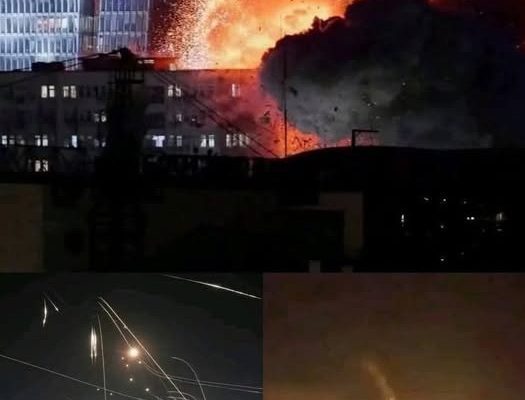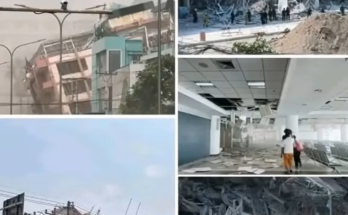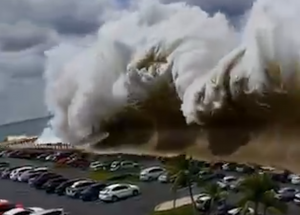🔴 BREAKING NEWS: Israel Under Attack — Escalation Sends Shockwaves Across the Middle East
Just 15 minutes ago, reports emerged confirming that Israel is once again under a heavy and coordinated attack — one of the most intense in recent months. Sirens blared across major cities including Tel Aviv, Ashkelon, and Jerusalem, as waves of rockets were launched from multiple directions. The Israeli Defense Forces (IDF) have responded immediately, scrambling fighter jets and activating the Iron Dome defense system in what they describe as a “massive retaliatory operation.”
The Situation Unfolds
Eyewitnesses report hearing loud explosions and seeing streaks of light across the night sky as the Iron Dome intercepted dozens of incoming projectiles. However, several rockets are believed to have struck populated areas, causing damage to infrastructure and injuries to civilians. Emergency services are working tirelessly to evacuate residents from high-risk zones, and hospitals have gone into emergency mode, preparing for potential mass casualties.
The IDF confirmed that the attack appears to have been launched from multiple fronts — raising fears of a wider regional escalation. Early intelligence points to militant factions operating out of Gaza, but unverified reports suggest possible involvement from other groups in southern Lebanon and even Syria.
Civilian Impact
The suddenness of the attack left thousands scrambling for safety. Parents were seen rushing to shelters with their children as air raid sirens echoed through the streets. Schools, government buildings, and public transportation systems have been temporarily suspended. Power outages have been reported in several southern districts as emergency generators kicked in to maintain critical services.
The Israeli government has urged calm but has also authorized “all necessary measures” to defend the nation. Prime Ministerial statements emphasized that “any aggression against Israel will be met with a response of unprecedented scale.”
International Reaction
Within minutes of the first reports, global leaders began issuing statements of concern. The United States, Israel’s closest ally, condemned the attack and reaffirmed its “ironclad support” for Israel’s right to defend itself. The European Union called for restraint and urged both sides to avoid actions that could lead to “a full-blown regional war.”
Meanwhile, in several Arab capitals, protests erupted both in support of Palestinian groups and in condemnation of the rising civilian toll. Analysts warn that this new round of violence could derail fragile diplomatic efforts that had been underway to stabilize the region.
Military Response
In response, Israel launched airstrikes targeting what they described as “terrorist infrastructure” and weapons depots. Fighter jets were seen flying low over coastal areas as explosions lit up the horizon. Reports indicate that dozens of militant positions were hit within the first hour, though full casualty numbers remain unconfirmed.
The IDF spokesperson stated that “this is not a one-night operation” and hinted that a prolonged campaign might be underway. Reservists have been called up, and border crossings have been sealed off to prevent the movement of militants or weapon supplies.
Fear of Wider Escalation
The biggest concern now is whether this attack marks the beginning of a broader conflict. With tensions already simmering between Iran and Israel, some intelligence officials believe the assault could be part of a larger proxy confrontation. Neighboring countries are now on high alert, monitoring their borders closely as the situation remains volatile.
Voices from the Ground
Inside Israel, residents describe a night of fear and chaos. “We had just put the kids to bed when the sirens started,” said one Tel Aviv resident. “We ran to the shelter and could feel the ground shaking. It’s terrifying not knowing where the next explosion will be.”
In Gaza, civilians are also bracing for Israeli airstrikes. “We hear the jets and we know retaliation is coming,” a local shopkeeper told reporters. “Every time this happens, ordinary people on both sides suffer.”
The Road Ahead
As dawn approaches, the world watches closely. Whether this will spiral into another prolonged conflict or subside through diplomatic channels depends on the coming hours. The United Nations Security Council has announced an emergency meeting to discuss the crisis, and regional mediators are already working to establish a ceasefire.
For now, the skies over Israel and Gaza remain lit by flashes of conflict — a stark reminder of the fragile peace that hangs over the Middle East. Civilians on both sides wait anxiously, hoping that the next siren or explosion won’t mark the start of something even worse.



